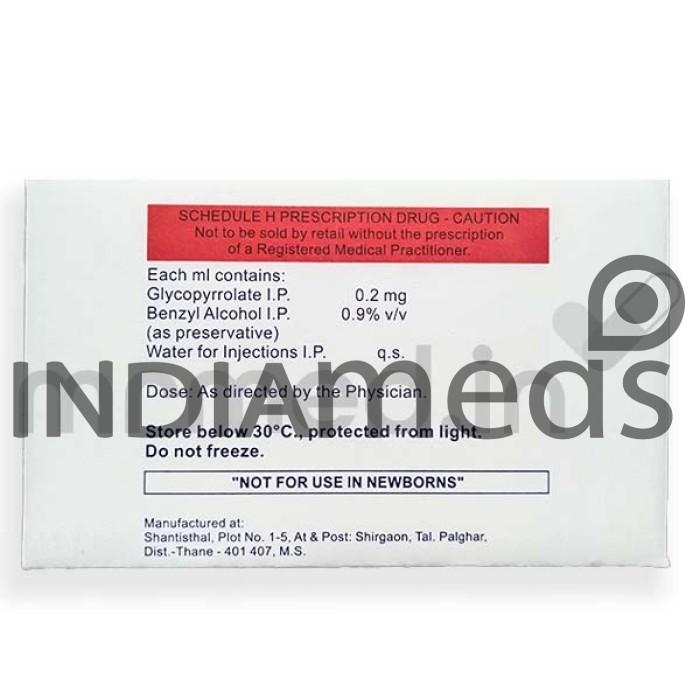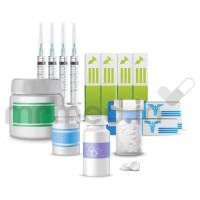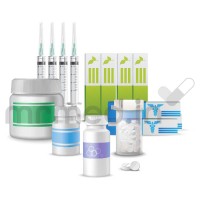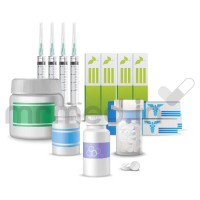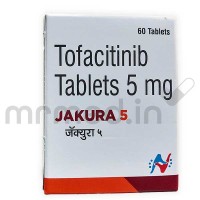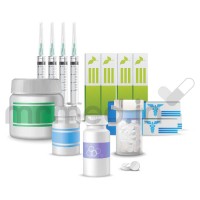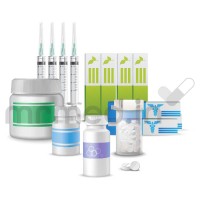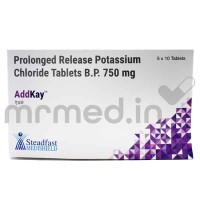Pyrolate 0.2mg injection contains an active component as Pyrolate 0.2mg injection. It belongs to a class of drugs known as anticholinergics. It is primarily used to reduce excessive saliva and secretions in the airways during surgical procedures or to manage conditions such as drooling, chronic obstructive pulmonary disease (COPD), and peptic ulcers. Additionally, Pyrolate 0.2mg injection may be used in combination with other medications to alleviate symptoms of irritable bowel syndrome (IBS) and gastrointestinal hypermotility. However, it is essential to use this medication under medical supervision due to potential side effects and drug interactions.
Individuals with a known hypersensitivity or allergy to Pyrolate 0.2mg injection or any of its components should avoid its use. It may increase intraocular pressure, so it is contraindicated in patients with narrow-angle glaucoma. The use of this medication is contraindicated in individuals with severe ulcerative colitis due to the risk of toxic megacolon. Dose adjustments may be required in individuals with hepatic or renal impairment, as the clearance of this medication may be reduced. It may cause constipation or intestinal obstruction, making it important to use with caution in individuals with gastrointestinal disorders.
- Blockage of secretion and reflexes before anaesthesia.
- Management of peptic ulcer
- Alleviation of catheter related bladder discomfort after surgery
Therapeutic Effects of Pyrolate 0.2mg Injection
Pregnancy
The safety of Pyrolate 0.2mg injection during pregnancy has not been extensively studied, and limited information is available regarding its use in pregnant women. Therefore, the use of it during pregnancy should be carefully considered and evaluated by a healthcare professional, weighing the potential benefits against the potential risks.
Breast Feeding
The safety of Pyrolate 0.2mg injection during breastfeeding has not been well studied, and limited information is available regarding its excretion into breast milk. As a result, it is recommended to exercise caution when using it while breastfeeding.
Lungs
Pyrolate 0.2mg injection can be used safely in lung conditions such as chronic obstructive pulmonary disease (COPD) and other respiratory conditions where excessive secretions are a concern. It is important to consult with a healthcare professional who can evaluate the specific lung condition and provide personalized advice on the safe and appropriate use of this medication in each individual case.
Liver
Pyrolate 0.2mg injection should be used with caution in individuals with liver impairment or hepatic dysfunction. The metabolism and clearance of medications, including this medication, can be altered in patients with liver problems.
Alcohol
Consuming alcohol while taking Pyrolate 0.2mg injection is generally not recommended. It has central nervous system (CNS) depressant effects, as it can cross the blood-brain barrier and potentially cause drowsiness or dizziness.
Driving
Pyrolate 0.2mg injection can cause certain side effects that may impair your ability to drive safely. These side effects can include dizziness, lightheadedness, blurred vision, and transient changes in heart rhythm. These effects can interfere with your concentration, alertness, and coordination, making driving potentially unsafe.
Serious:
- Allergic reactions (rash, itching, swelling, severe dizziness, difficulty breathing)
- Severe abdominal pain or bloating
- Rapid or irregular heartbeat
- Trouble swallowing or speaking
- Severe drowsiness or confusion
- Mental or mood changes (hallucinations, agitation, delirium)
- Severe constipation or bowel obstruction
- Urinary retention (inability to urinate)
Common:
- Dry mouth
- Blurred vision
- Dizziness
- Constipation
- Difficulty urinating
- Increased heart rate
- Headache
- Nausea
Common side effects of Pyrolate 0.2mg injection may include dry mouth, blurred vision, constipation, difficulty urinating, increased heart rate, headache, and nausea. These side effects are usually mild and transient.
Pyrolate 0.2mg injection can be used in children and elderly individuals, but caution should be exercised, and dosage adjustments may be necessary. Specific guidance should be obtained from a healthcare professional.
There are no specific dietary restrictions associated with Pyrolate 0.2mg injection use. However, it is always advisable to maintain a healthy and balanced diet, as recommended by your healthcare professional.
Pyrolate 0.2mg injection should be used with caution in patients with a history of seizures or epilepsy. It is recommended to consult with a healthcare professional who can evaluate the individual's specific situation and determine the appropriateness of this medication use in such cases.
If you miss a dose of Pyrolate 0.2mg injection, take it as soon as you remember. However, if it is close to the time for your next scheduled dose, skip the missed dose and resume your regular dosing schedule. Do not double up on doses to make up for a missed dose.
Yes, Pyrolate 0.2mg injection can be prescribed for the treatment of hyperhidrosis (excessive sweating). It works by reducing the activity of sweat glands and can help alleviate excessive sweating in certain individuals.
Molecule name: Glycopyrrolate | Therapeutic class: Antisalivatory Agents |
Pharmacological class: Anticholinergic agents
| Indications: 1. Blockage of secretion and reflexes before anaesthesia. 2. Management of peptic ulcer 3. Alleviation of catheter related bladder discomfort after surgery |



